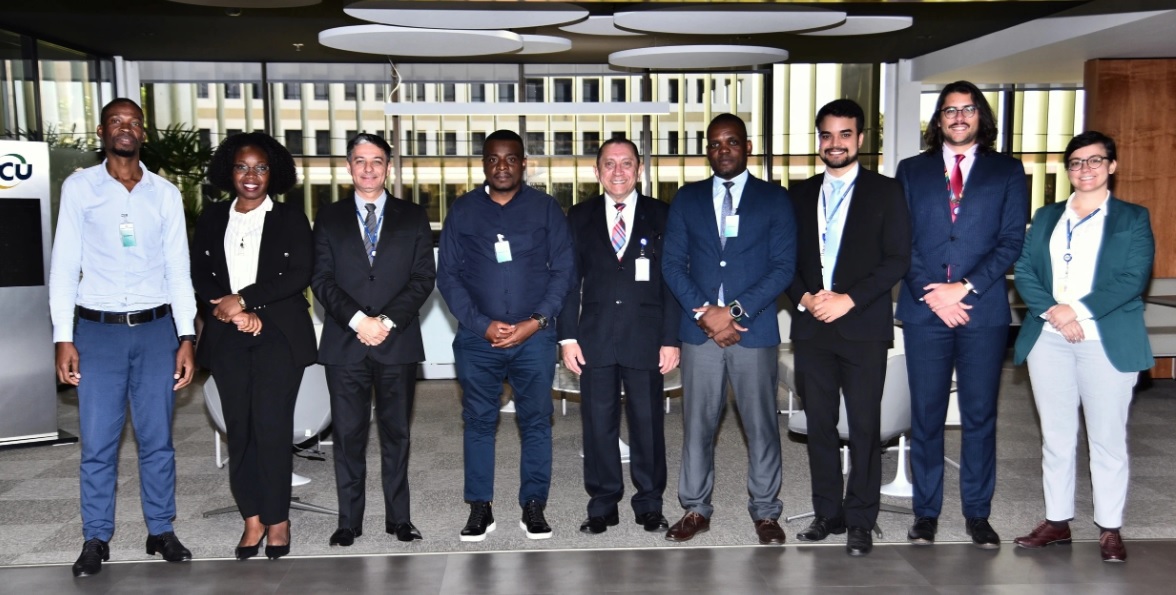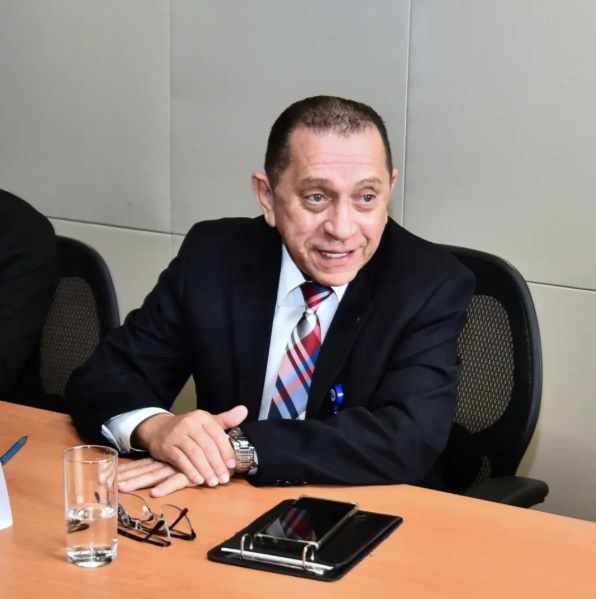Mozambican Delegation Visits Brazil to Learn About TCU’s Financial Audit Standards
By Secom / Serint

On May 30, the Brazilian Federal Court of Accounts (TCU) welcomed a delegation from the Government of Mozambique. The visit aimed to explore the process of aligning financial audit standards with the International Standards on Auditing (ISA), issued by the International Federation of Accountants (IFAC). These standards have been adopted as the International Standards of Supreme Audit Institutions (ISSAIs) for Financial Auditing and were translated for application in Brazil by the Federal Accounting Council (CFC) as the Brazilian Accounting Standards for Public Sector Audit (NBC TASP).
The Mozambican delegation was particularly keen to understand how adopting international standards has improved Brazil's approach to financial audits. They wanted to learn about the TCU's role in auditing and overseeing the application of the International Public Sector Accounting Standards (IPSAS) for preparing Public Sector Financial Statements, and in executing the process of consolidating Government Accounts.
Additionally, they sought to understand the work processes and practical examples of audits based on ISA/ISSAIs and their application within the Brazilian context. The visit was facilitated by the Technical Coordination of the CFC's Standards Department. Representatives from the Mozambican government were hosted by the Audit Department for Account Certification (AudFinanceira), which is part of the Department of Government Audit for Public Accounts (SecexContas), with support from the Department of International Relations (Serint).
 Antonio Carvalho, Chief Auditor of AudFinanceira, and the Deputy Chief Arnaldo Ribeiro detailed the process through which the TCU issues audit opinions on the government’s consolidated financial statements. They outlined the progress of the TCU's financial audit strengthening strategy, which involves adapting standards for reporting and certifying accounts, establishing a specialized unit for financial audits, and focusing on capacity-building initiatives. This includes team training, developing audit guidelines and procedures, conducting audit work, and implementing quality management practices.
Antonio Carvalho, Chief Auditor of AudFinanceira, and the Deputy Chief Arnaldo Ribeiro detailed the process through which the TCU issues audit opinions on the government’s consolidated financial statements. They outlined the progress of the TCU's financial audit strengthening strategy, which involves adapting standards for reporting and certifying accounts, establishing a specialized unit for financial audits, and focusing on capacity-building initiatives. This includes team training, developing audit guidelines and procedures, conducting audit work, and implementing quality management practices.
Adjustments
Antonio Carvalho explained that integrating financial auditing into the Court’s oversight processes required adapting the reporting model to comply with Normative Instruction 84/2020 (Instrução Normativa 84/2020) and Normative Decision 198/2022 (Decisão Normativa 198/2022). This adjustment was essential for evaluating the accounts of the President of the Republic, which rely on the data consolidated in the Union General Balance (BGU).
Previously, in 2017, the Court issued the TCU Resolution 291/2017 (Resolução TCU 291/2027), establishing the use of international standards in the audit work supporting the preliminary opinion on government accounts. “Currently, the TCU issues an audit opinion on the government’s consolidated financial statements in accordance with these standards,” explained Carvalho.
He further noted that 94% of the federal budget and 75% of the Union’s assets are currently audited by the TCU, with the support of the Office of the Comptroller General (CGU). He emphasized that this extensive coverage is achieved with only about 15 significant annual accounts out of the 1,095 reporting entities under the TCU’s jurisdiction. This approach underscores the effectiveness of the adopted reporting model in supporting the issuance of the preliminary opinion on government accounts.
Arnaldo Ribeiro shared practical examples of audits conducted in accordance with ISA/ISSAIs, highlighting the organization and coordination of the work that results in the audit opinion on the government’s consolidated statements. He detailed the methods for determining materiality thresholds and risk assessment techniques that guide audit objectives, as well as the evaluation of audit evidence and the formulation of audit opinions. Ribeiro also highlighted the importance of automating audit procedures to manage the extensive workload and data volume, aiming to improve efficiency, timeliness, and reliability in the auditing process.
The visitors were provided with copies of the audit strategy report, opinion, and decision, along with the standards that make up the TCU’s audit model. They also received links to access financial audit manuals from the TCU and the INTOSAI Development Initiative (IDI) in Portuguese, along with self-instructional financial audit courses developed by AudFinanceira and offered through the Serzedello Corrêa Institute (ISC) for Capacity Building.

The Mozambican delegation included Abdel Saquina Muhorro Mussagy Talaquichand, Project Manager for the Adoption and Implementation of IPSAS, and Abrahamo Vasco Qui, Business Process Analyst. The group also included two senior officials from the Budget and Public Accounting area: Vangelina Vanusa Francisco Constantino and Acrisio Boaventura Mandlate. Luiz Gustavo de Azevedo Santos, Nadja Ponte Nogueira, and Lucas Moura Maximo also participated as TCU advisors, while Felipe Gonçalves Bastos and Cíntia Pimentel represented the Federal Accounting Council (CFC) at the meeting.